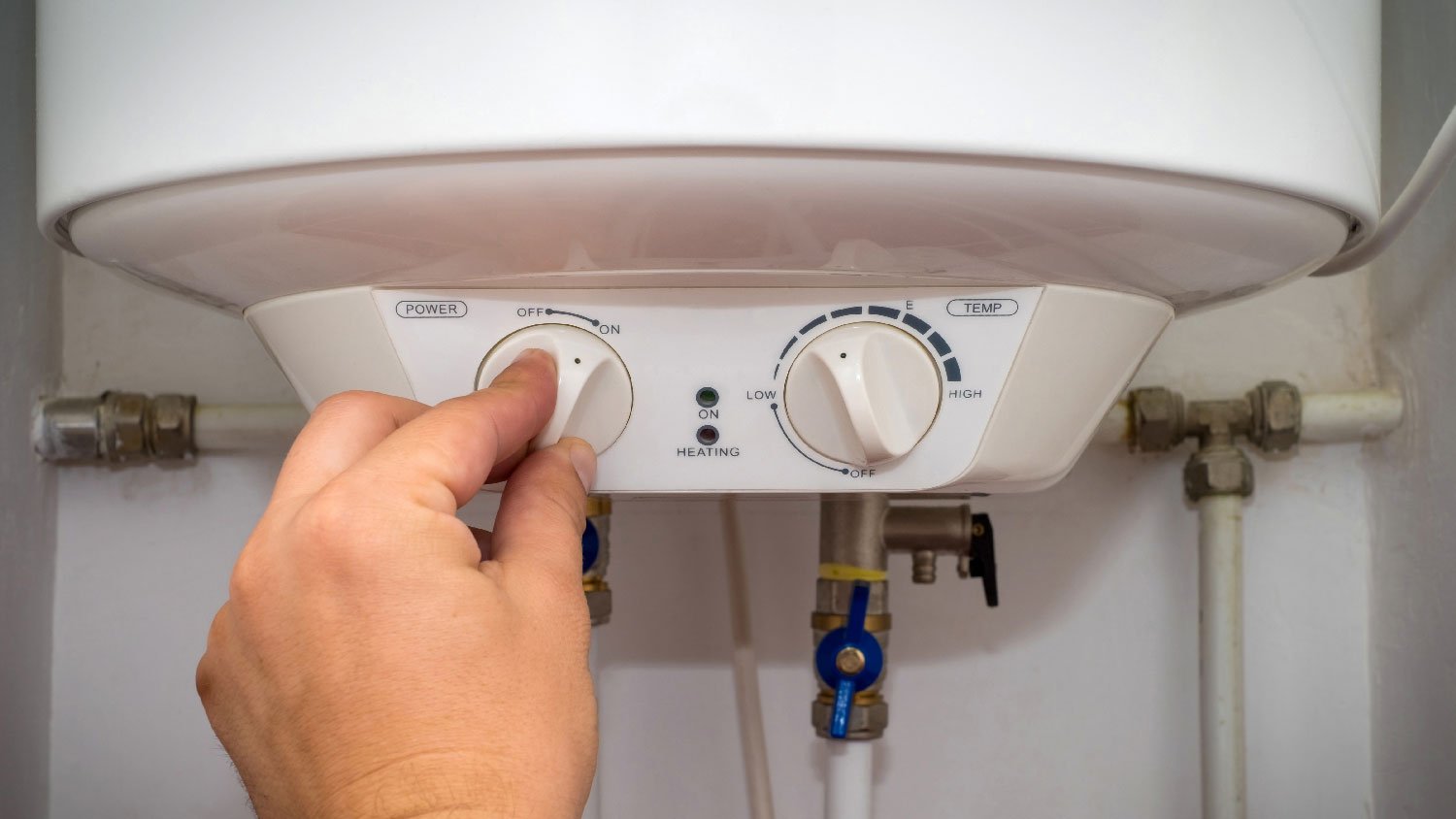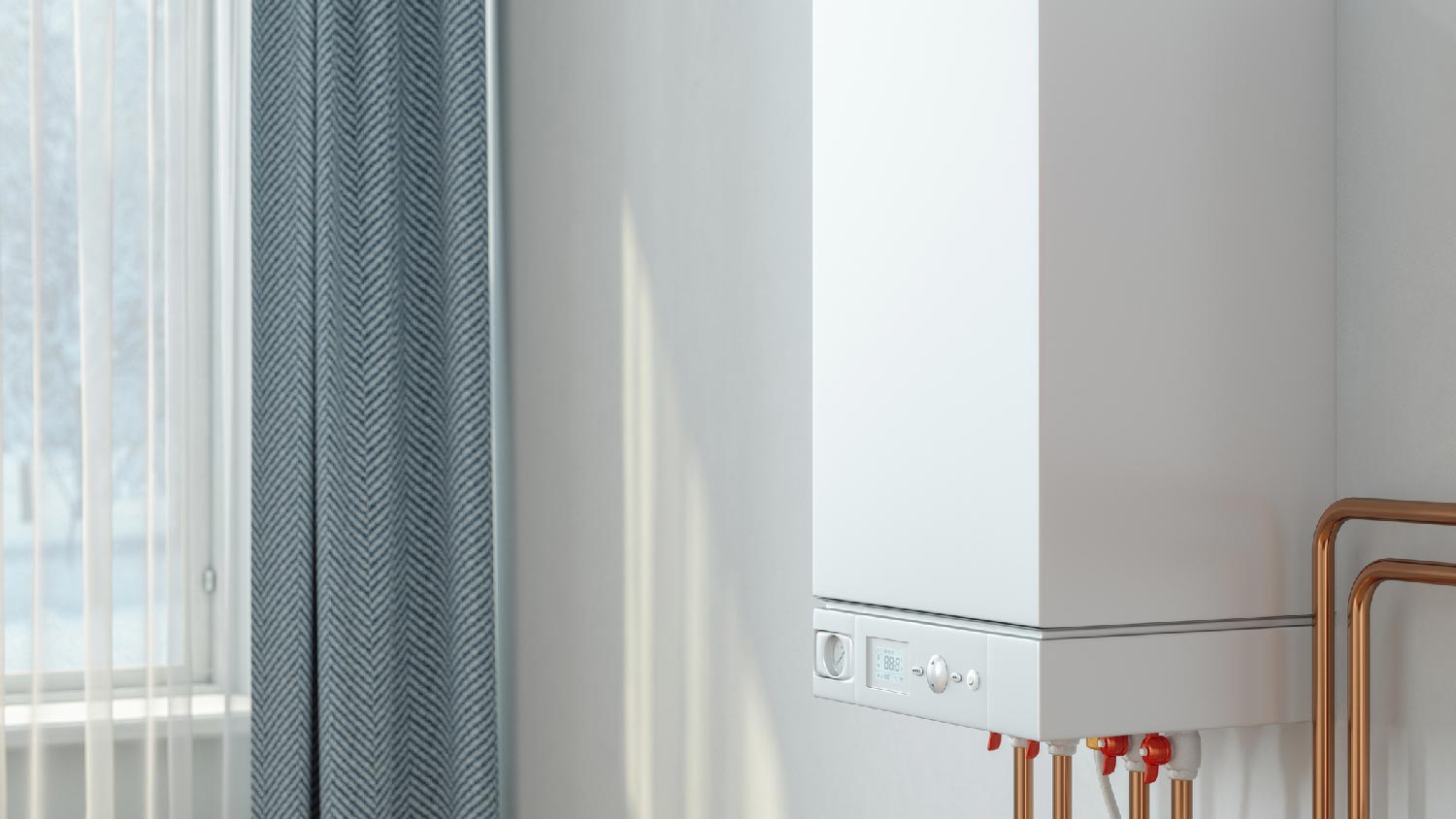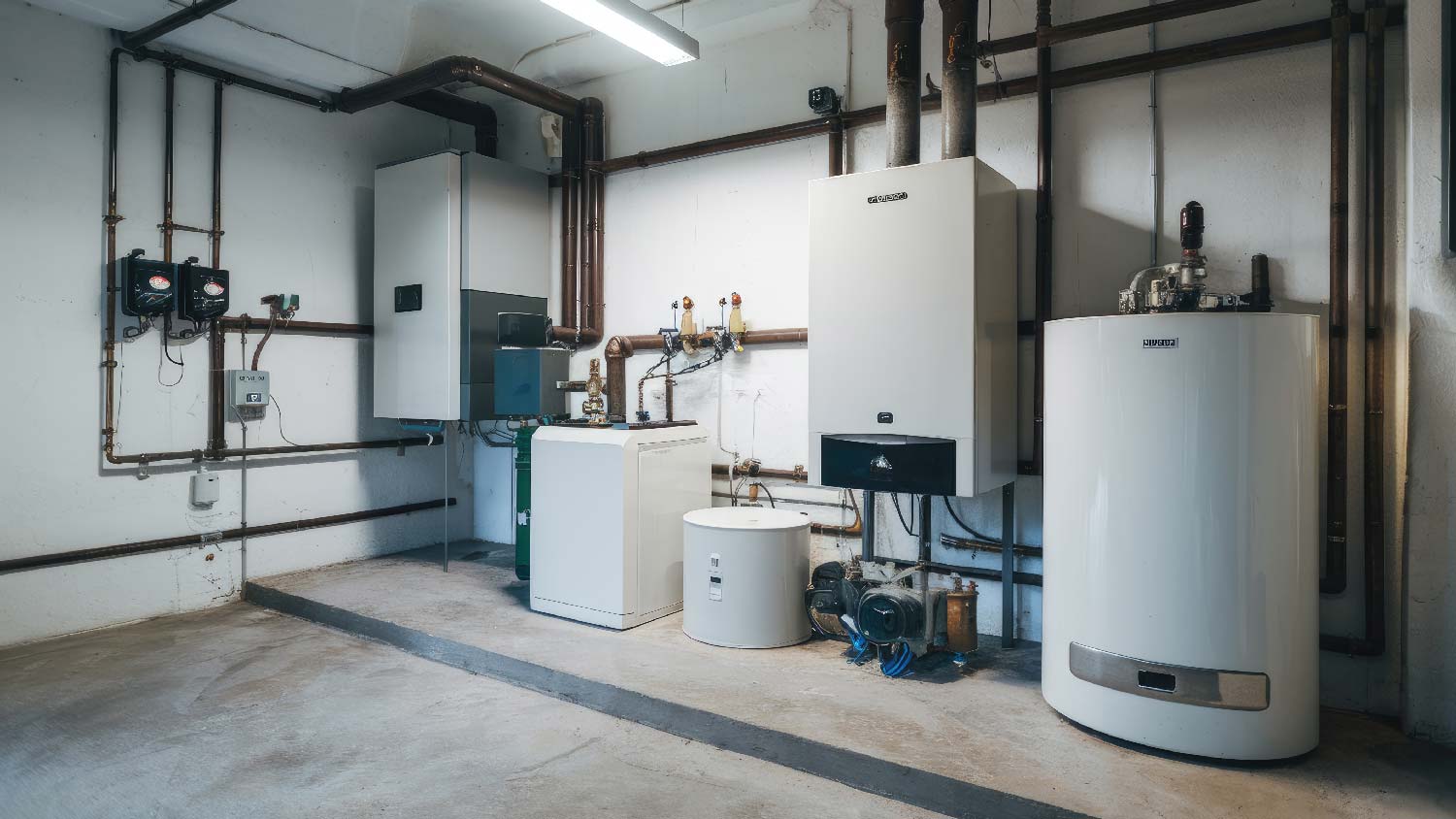How Do Water Heater Warranties Work?
Don’t get frosty at the idea of no hot water


Water heater warranties help cover the costs of repairs or replacement.
Warranties have limited terms and conditions and can be voided if you forget to undergo regular maintenance.
You can buy water heater warranties with a new water heater or add them to existing ones.
A reliable water heater is an essential unit in any household. Hot water is used for bathing, dishes, laundry, and more daily tasks. While you can do any of these things with cold water, it’s not as efficient and definitely not as comfortable. So, when your water heater breaks, it can cause frustration and panic. A water heater warranty can give you some peace of mind, but how does a water heater warranty work?
A water heater warranty is a contract between the manufacturer or retailer of the water heater and the person who bought it. This warranty helps cover some of or, in some cases, all of the cost of defects in materials or installation during a predetermined span of time. Unfortunately, you don't know when your water heater will fail, if at all. Luckily, you can look out for signs that your water heater is about to break and have a policy in place to save money and avoid aggravation.
Types of Water Heater Warranties

When shopping around for policies, you have a few different options. Three types of warranties can help protect your water heater.
Unfortunately, none of us can see into the future, so you don’t know when your water heater will fail (if it does at all). Luckily, there are some signs that your water heater is about to break that you can always be on the lookout for. Having this policy before the appliance actually does fail will help you save money and avoid unnecessary aggravation.
Three different types of warranties can help protect your water heater:
Home Warranty
You can purchase a water heater warranty as part of your home warranty plan; in some cases, it might already be added to the warranty. You’ll want to check the fine print of your home warranty plan to see if it’s already included. This type of warranty might last longer than the original product warranty and covers many home appliances in addition to the water heater.
Product Warranty
A product warranty generally lasts six years and is provided by the manufacturer directly. This helps guarantee product defect coverage if something breaks within the warranty time frame. However, it’s important to note that damage caused by user negligence generally limits or voids this warranty. Also, if your water heater isn’t installed by a certified local water heater installer, your warranty might be limited.
Extended Warranty
Extended warranties provide additional coverage for your water heater when the product warranty expires. Some retailers and manufacturers offer the option to purchase an extended warranty in addition to a standard product warranty. These offer coverage for an additional one to three years, which, when combined with the product warranty, should last through the unit's average lifespan.
Similar to the product warranty, the covered parts and labor can vary based on the manufacturer and specific warranty. These policies also cover additional water heater components, like the heat exchanger, that the initial warranty might not cover.
Pros of Water Heater Warranties
You can think of a water heater warranty like any other insurance policy; you might not necessarily need it, but it can be very useful to have if you were to need it. Some benefits of this type of policy include:
Protection against defects: A water heater warranty typically covers manufacturing defects that happen within the specified period. If your water heater fails due to a covered defect, the warranty ensures that you receive a repair or replacement at a reduced cost (or no cost at all).
Peace of mind: A water heater is a crucial appliance of any home, and a warranty provides peace of mind by protecting you against costly unexpected breakdowns.
Professional assistance: If you do have a problem with your water heater, your warranty will provide you with access to authorized technicians who have expertise in dealing with specific water heater problems.
Purchasing options: You can purchase water heater warranties for older water heaters to maximize their longevity.
Remember that warranty coverage can vary based on the manufacturer and specific terms of your agreement. It’s always important to review your warranty agreement with your licensed water heater installer to verify what is (and what isn’t) covered.
Cons of Water Heater Warranties
Although having a water heater warranty can be advantageous, you should consider a few things before purchasing additional coverage.
Limited coverage: Water heater warranties often come with specific rules and conditions that may limit what’s covered. For example, if the water heater breaks due to user negligence, the policy most likely will not cover repairs or a replacement. Every policy is different, which can also make the process confusing.
Expiration and renewal: Most water heater warranties have a limited duration. Once the policy expires, you no longer have coverage unless you purchase an extended warranty, and even those don’t last forever.
Maintenance requirements: Many warranties require proper water heater maintenance, like draining the water heater at least once a year, for the warranty to remain valid. If you forget your regular water heater maintenance and end up needing repairs, you’ll likely be responsible for the cost, even if your policy covers it otherwise.
Exclusions apply: Some water heaters, like solar or tankless water heaters, are not covered under warranties due to their costly nature.
Cost of Common Water Heater Repairs Without a Warranty
On average, the cost to replace a water heater is $1,320 when you hire a local water heater repair pro. That’s why it’s important to have a warranty to protect you from spending even more money, especially if you just purchased one recently. Below are some typical costs to replace parts of a water heater that can break. While some are rather inexpensive, others can be quite costly to replace without a warranty protecting you.
| Part | Average Price |
|---|---|
| Heating element | $15–$25 |
| Gas burner | $175 |
| Thermostat | $80 |
| Gas valve | $100–$300 |
| Anode rod | $20–$50 |
In addition to your warranty covering the cost of parts, it can also help cover the cost of labor to repair or replace the parts. On average, plumbers cost $45 to $200 per hour, so having a warranty in place will likely save you some major cash. Be sure to call the warranty company if you do need help with a repair to see if they require a specific certified technician to do the work.
Choosing to purchase additional coverage can be confusing, especially if you don't know what it’ll cover or in what situation you might need to use it. Water heater warranty coverages depend on the plan you have, the brand of water heater you purchase, and sometimes even the company that installs your water heater. It’s always best to discuss warranty coverage with your installer. They’ll be able to tell you what’s covered under the general product warranty, how long the extended warranty will run, and what will void the warranty.
Is a Water Heater Warranty Worth It?
You might still be asking yourself if having a water heater warranty is worth it. After all, spending extra money for coverage that you might not use can be daunting. Water heaters generally last eight to 15 years, and under perfect conditions, you won’t need to worry about repair or replacement until it reaches the end of its normal life span. But things don’t always go according to plan, and you might need a repair a lot sooner than you think.
You may consider purchasing a water heater warranty if:
You just purchased a new water heater.
Your water heater is nearing the eight-year mark.
You want to save money on the cost of repairs.
You may not want to purchase a water heater warranty right now if:
Your water heater is over eight years old.
You know you’ll be replacing your water heater soon.
You won’t be able to maintain your water heater as required.
Considering all of this will help you decide if this type of warranty is right for you or if you’d be better off waiting until it’s time to replace it.
Is My Water Heater Under Warranty?
Most water heater warranties range from 6 to 12 years. Some might come with an extended warranty that offers an additional 1 to 3 years of coverage. If you purchased a new water heater, your manufacturer will give you everything you need to register your appliance and activate the water heater within 30 days of purchase. If you bought a home with an old water heater, contact the manufacturer directly to find out about warranty coverage.
If your water heater’s original warranty has expired, check with your home warranty provider. Most home warranty policies cover repair and repairment of major appliances, including your water heater.
How to Use the Water Heater’s Warranty
To use your water heater’s warranty, the first thing you need to do is review the warranty documentation. Every warranty is unique, so you’ll need to investigate the details of yours when it comes to coverage periods, what’s included in the warranty, and the steps required to file a claim.
If you can’t find your original warranty documentation, you can try reaching out to the plumber who installed the water heater. They often keep records of their installations and associated warranties. You can also reach out to your water heater’s manufacturer, which should be able to provide you with a copy of the warranty based on the model and serial number of your water heater.
Once you obtain your warranty documentation, make sure your water heater is still under warranty. Each warranty has a coverage period that will eventually expire, so ensure that you’re still within the coverage period because otherwise, you can’t use the warranty. If you’re still within the warranty period, then review the warranty documentation to make sure that your specific issue is covered by the warranty. Common coverage includes defects in workmanship and the water heater’s materials.
If your issue is covered and still within the warranty, then follow the claims process outlined by the documentation. This often involves contacting customer service and/or scheduling a service visit from a technician, but this process varies by warranty and manufacturer.
Warranty Considerations When Purchasing a New Water Heater
Understanding and evaluating different warranty options can help you make the best choice for your home. Here are some considerations to make before choosing a warranty for your water heater.
Compare Lengths and Coverage
Different water heater manufacturers offer different warranty lengths and coverage details. Look for warranties with long coverage periods that include comprehensive protection against workmanship and materials defects. Some warranties also cover labor costs, which can save you additional money in repairs.
Understand What the Warranty Specifically Covers
Understanding a warranty’s general coverage is important, but it is also important to understand its specifics. For instance, some warranties might say they cover materials defects, but that coverage might only include some parts of the water heater while omitting some other critical components. If a prospective warranty lists many exclusions from coverage compared to other options, consider that a red flag.
Investigate the Manufacturer’s Reputation
Research the reputation of the manufacturer from which you’re buying the warranty. Look up online customer reviews and see if customers complain about the manufacturer not honoring the warranties. You can also ask friends and family if they have any firsthand experience with a brand.
Consider an Extended Warranty
Extended warranties can provide additional peace of mind by extending the warranty’s coverage period and potentially broadening the scope of what’s covered, but they also come at a higher cost. Consider whether the additional cost is reasonable for you when weighed against potential repair and replacement costs.
Evaluate Cost vs. Warranty Coverage
In many cases, cheaper water heaters come with shorter and less comprehensive warranties. These models might seem like bargains at first, but if they break down and the warranty doesn’t adequately cover repairs or replacement, they can end up costing you more in the long run. For that reason, many homeowners opt for more expensive models with longer, more robust warranties.





- Am I Covered? Here’s What’s Included in a Home Warranty
- Why You Should Offer a Home Warranty When Selling Your Home
- Is a Home Warranty Worth It?
- Which Appliances Need an Extended Warranty and Should You Get One?
- Understanding What Your Roof Warranty Covers
- Everything You Need to Know About Basement Waterproofing Warranties
- Top 7 Signs You Need a New Water Heater
- How Long Does a Water Heater Last? Should You Replace It?
- 12 Surprising Things That Can Void Your Roof Warranty
- Why the Water Heater Keeps Tripping Breaker










